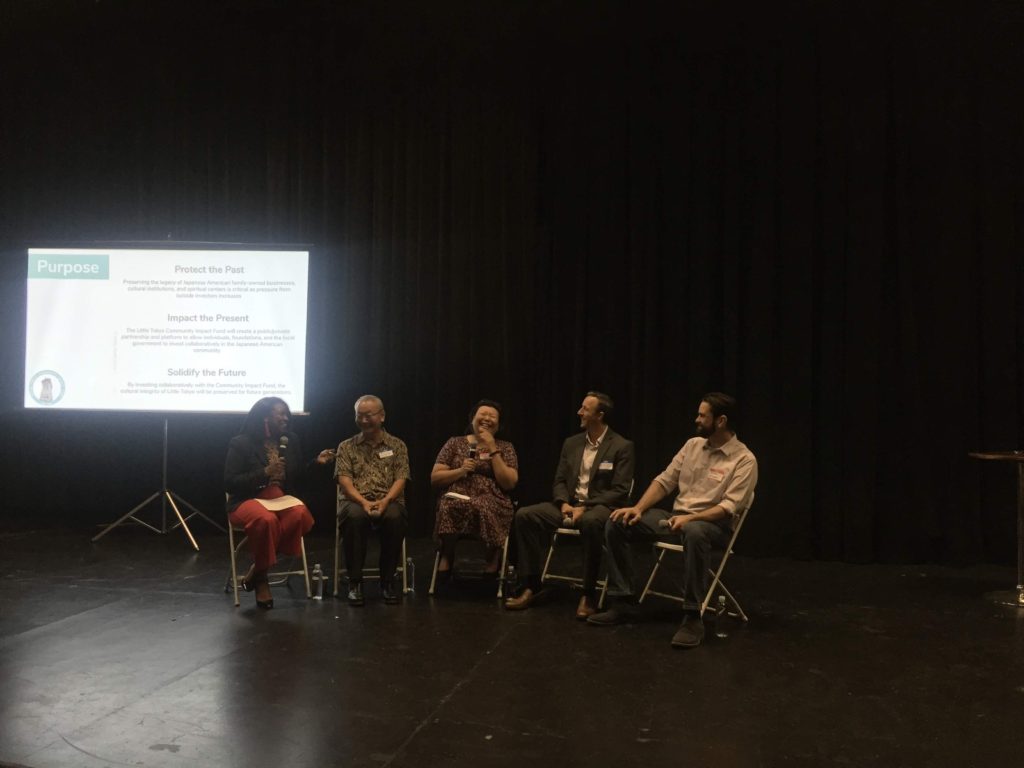LTCIF is an emerging model for anti-displacement that centers community investment and ownership. Just last month at Los Angeles LISC’s “Preserving Cultural Neighborhood Gems” Convening on October 15th, LTCIF organizing committee members Bill Watanabe and Lisa Hasegawa joined a panel alongside CDC Small Business Finance and With Love Café and Market to discuss financial tools that could help sustain small businesses at risk of displacement.
The panel highlighted the need to think outside the box and create resources beyond traditional lending and financing tools that are not necessarily accessible to different communities impacted by rising rents and gentrification. The growing movement of LTCIF is made possible by a committee of dedicated individuals who share their expertise and networks and also by stakeholders who want to see Little Tokyo grow.
“We’re drawing from a regional pool of people who care about Little Tokyo. And [the Fund’s purpose] crosses race, class, geography…[our approach is] multi-generational…It’s really about building that community stake,” explained Lisa Hasegawa when asked about the partnerships that LTCIF has developed.
The panel was moderated by LA LISC Executive Director, Tunua Thrash-Ntuk.

Here are some highlights of the panel:
- Bill Watanabe shared how the Fund started as a conversation in a living room among Little Tokyo community advocates and stakeholders. The rational behind the $10,000 and $1,000 share options is informed by meetings with community members and attorney, Brett Heger. In 2 months, LTCIF is halfway to their goal of $500,000!
- Tony Barengo from CDC Small Business Finance shared information about their partnership with LISC where they offer loans (leveraged by sources such as New Market Tax Credits) to small businesses to own their spaces. The loan rates offered to these businesses are below market rate and take “the best parts” of the SBA commercial real estate loan to provide more flexibility to applicants.
- Andrew McDowell, owner of With Love Café located near South LA, presented on his innovative social-enterprise model for his business where he invites community members to be investors and co-owners.
Although these strategies serve different neighborhoods, they are rooted in a similar purpose: to address displacement in their communities. They are examples of new and emerging models for ownership and resources for anti-displacement efforts.
A partial recording of the panel is available below (28 minutes):
LTCIF’s strategies is informed by community input and relies on the participation of CA residents. To learn more about our model and become an investor, please visit our “Invest” page.
All prospective investors should: 1) review LTCIF’s Offering Circular, 2) sign the subscription agreement and investor questionnaire, and 3) submit a payment to purchase a share or multiple shares.